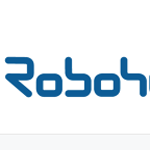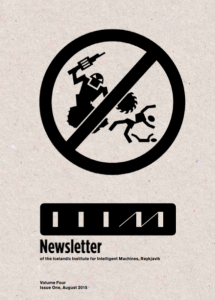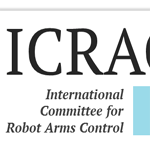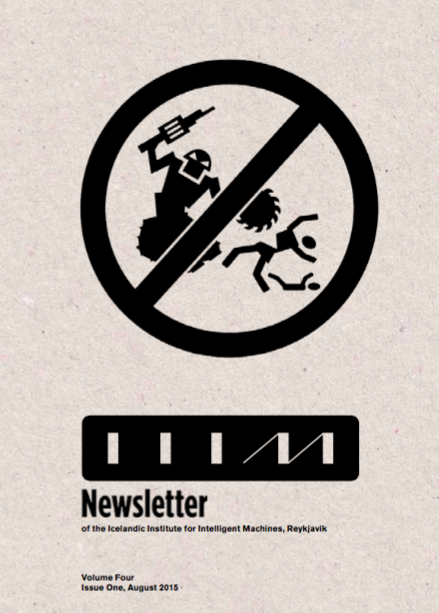 Adriana Hamacher, Robohub’s Deputy Editor writes about IIIM’s newly launched Ethics Policy and it’s role in the ever increasing criticism of military robots. Read the full article here.
Adriana Hamacher, Robohub’s Deputy Editor writes about IIIM’s newly launched Ethics Policy and it’s role in the ever increasing criticism of military robots. Read the full article here.
IIIM News
News about the institution, its research & recent advances
ICRAC.net: IIIM FIrst AI R&D Lab to Shun Militant AI
Roboticist Noel Sharkey writes for the ICRAC newsletter: “The Icelandic Institute for Intelligent Machines (IIIM) has issued an ethical policy that makes them the first Artificial Intelligence research and development group to reject the development of technologies intended for military operations.”
IIIM Takes Lead on First Ethics Policy for Peaceful R&D
 While computer technology has greatly enhanced our opportunities and means to communicate, it also has allowed anyone so inclined to spy, invade personal privacy, and violate human rights, with little effort in deep obscurity. The United States’ Patriot Act gave government agencies of the US access to millions of private citizens’ data under the pretense of national security. Uproar caused by its expiration in late May 2015, and subsequent reinstatement a few days later, as well as Edward Snowden’s NSA whistleblowing, created a maelstorm of debate about how our information is collected and disseminated. IIIM’s position at the crossroads of academia and industry left it in a unique position to choose: ethical refusal – to cause harm with its research, or status quo – to accept money without complaint. Continue reading IIIM Takes Lead on First Ethics Policy for Peaceful R&D
While computer technology has greatly enhanced our opportunities and means to communicate, it also has allowed anyone so inclined to spy, invade personal privacy, and violate human rights, with little effort in deep obscurity. The United States’ Patriot Act gave government agencies of the US access to millions of private citizens’ data under the pretense of national security. Uproar caused by its expiration in late May 2015, and subsequent reinstatement a few days later, as well as Edward Snowden’s NSA whistleblowing, created a maelstorm of debate about how our information is collected and disseminated. IIIM’s position at the crossroads of academia and industry left it in a unique position to choose: ethical refusal – to cause harm with its research, or status quo – to accept money without complaint. Continue reading IIIM Takes Lead on First Ethics Policy for Peaceful R&D
MOTHERBOARD’s Report on IIIM’s New Ethics Policy
J ohn Wenz of Motherboard writes an excellent report on IIIM’s new Ethics Policy which renounces military funding for artificial intelligence research and development. The piece contains a highly informative and entertaining video on the subject.
ohn Wenz of Motherboard writes an excellent report on IIIM’s new Ethics Policy which renounces military funding for artificial intelligence research and development. The piece contains a highly informative and entertaining video on the subject.



